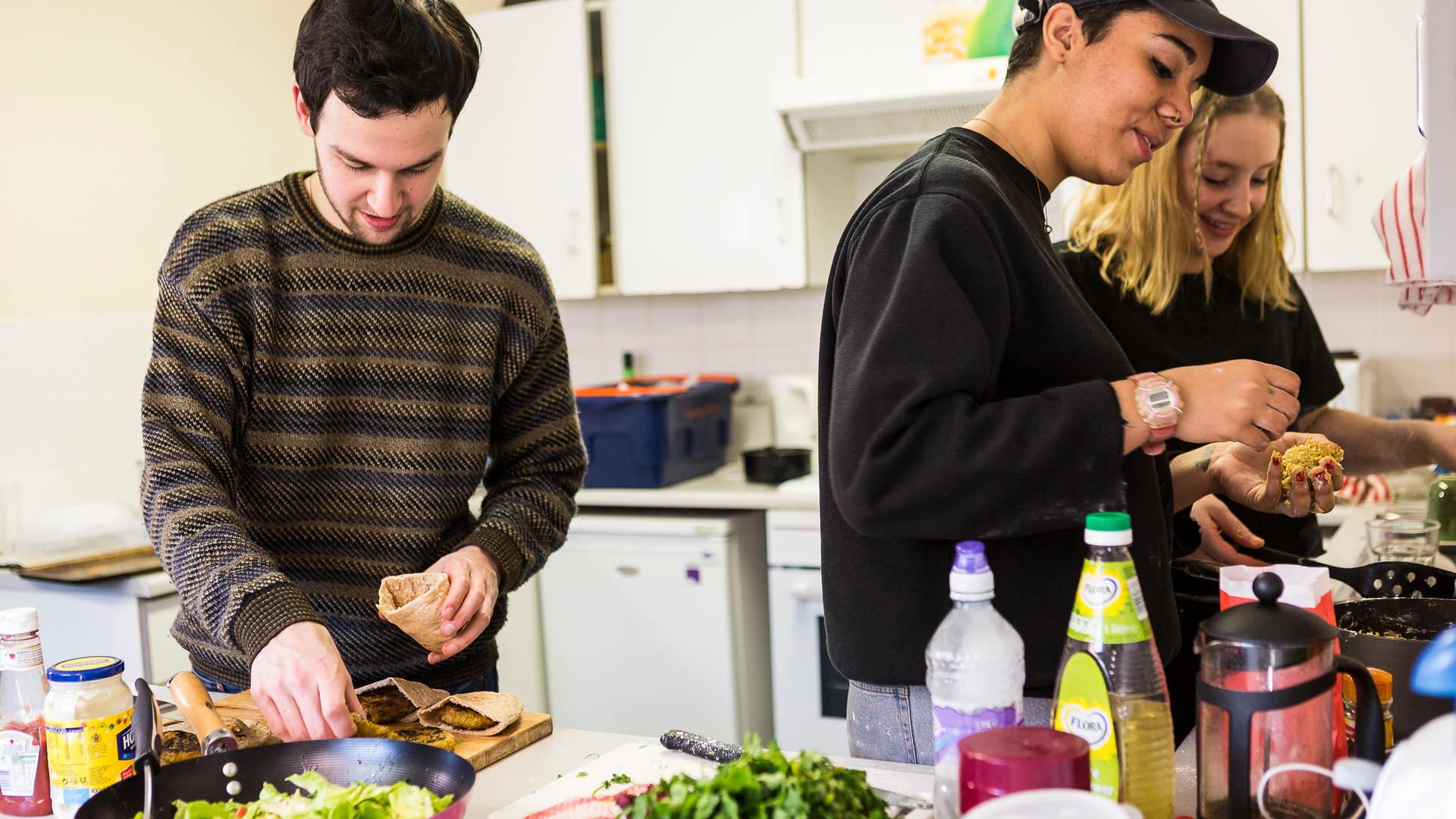Arrival and settling in
Starting a new course at a new university without your friends and family generates lots of feelings and emotions – excitement, anticipation, joy and belonging, as well as anxiety, homesickness, and uncertainty.
Primary page content
“So, you’ve got a blank canvas in front of you. What do you bring? The first thing I thought about was how I was going to decorate my room to make it feel as homely as possible.”
Remember that everyone is in the same situation and you’re not alone. The first few weeks of university are designed to help you become acquainted with your surroundings and make it feel like your new home.
Intro at the ready
You’re going to be meeting new people for at least two weeks so decide what you’d like to say about yourself when someone says ‘Hi’. What are the fun/interesting things you’re happy to share with other students and academics (favourite film, best pizza topping, number of pull-ups you can do in 10 minutes, a local phrase or term you’ve never heard before)?
Orientation
This is usually for EU and international students and enables them to arrive on campus early so that they can move in and become familiar with life in the UK before everyone else arrives.
Move-in weekend
If you move away to university and have a room in university accommodation, you will be advised of a move-in date and time. When you arrive, there will be student ambassadors to help you unload and take things to your room. You may be nervous but be bold - keep your room door open or pop into the kitchen to see your new flatmates and take part in the social activities that take place throughout the weekend.
Welcome Week
Welcome Week also called Fresher’s Week this is when you can sign up to join societies and sports clubs, take a tour of campus and/or the local area, check out the gigs in the students’ union, meet academics and staff from your department, step inside the library and chat to the subject-specific librarians, and apply for part-time jobs.
Classes and VLE (Virtual Learning Environment)
When you receive your timetable, walk around campus to find the lecture theatres, seminar rooms, studios and workshops where you’ll be studying. If you need directions, ask at any of the reception desks or just stop someone in the corridors. Check your log-in details for the VLE (Virtual Learning Environment) and familiarise yourself with the screen layout. If there’s any terminology or acronyms that you don’t understand, just ask.
